First time I´ve heard of Bernard Moitessier in more detail was a book of Germany´s first – and until now only – single hand circumnavigator Wilfried Erdmann who had his encounter with Moitessier in the seventies. Erdmann has great admiration for Moitessier who, having their boats next to each other in Alicante, teached him in astronavigation and was even back then a respected seafarer. For what reason? Well, I should learn more of Moitessier some books later when I read the unbelievable amazing story of Donald Crowhurst and his Teignmouth Electron in the Golden Globe Race 1968 (you may browse to the full book review here. Moitessier is seen as the great yachtsman-philosopher of his time and, despite the fact that he refrained from winning the race and went on for another half circumnavigation giving up his lead. Moitessier remains immortal and is still the ideal for generations of skippers.
Bernard Moitessier: „The Long Way“
His book “The Long Way” deals with the events of the Golden Globe Race around the world – the attempt to complete the first ever single handed circumnavigation with a yacht and has been written by Bernard in 1971, roughly two years after the race. He chooses to write from the first-person perspective and tries to tell the story from a log-like writing style. It´s his very presence, the feeling of non-distance that drags the reader into the story right from the first pages.
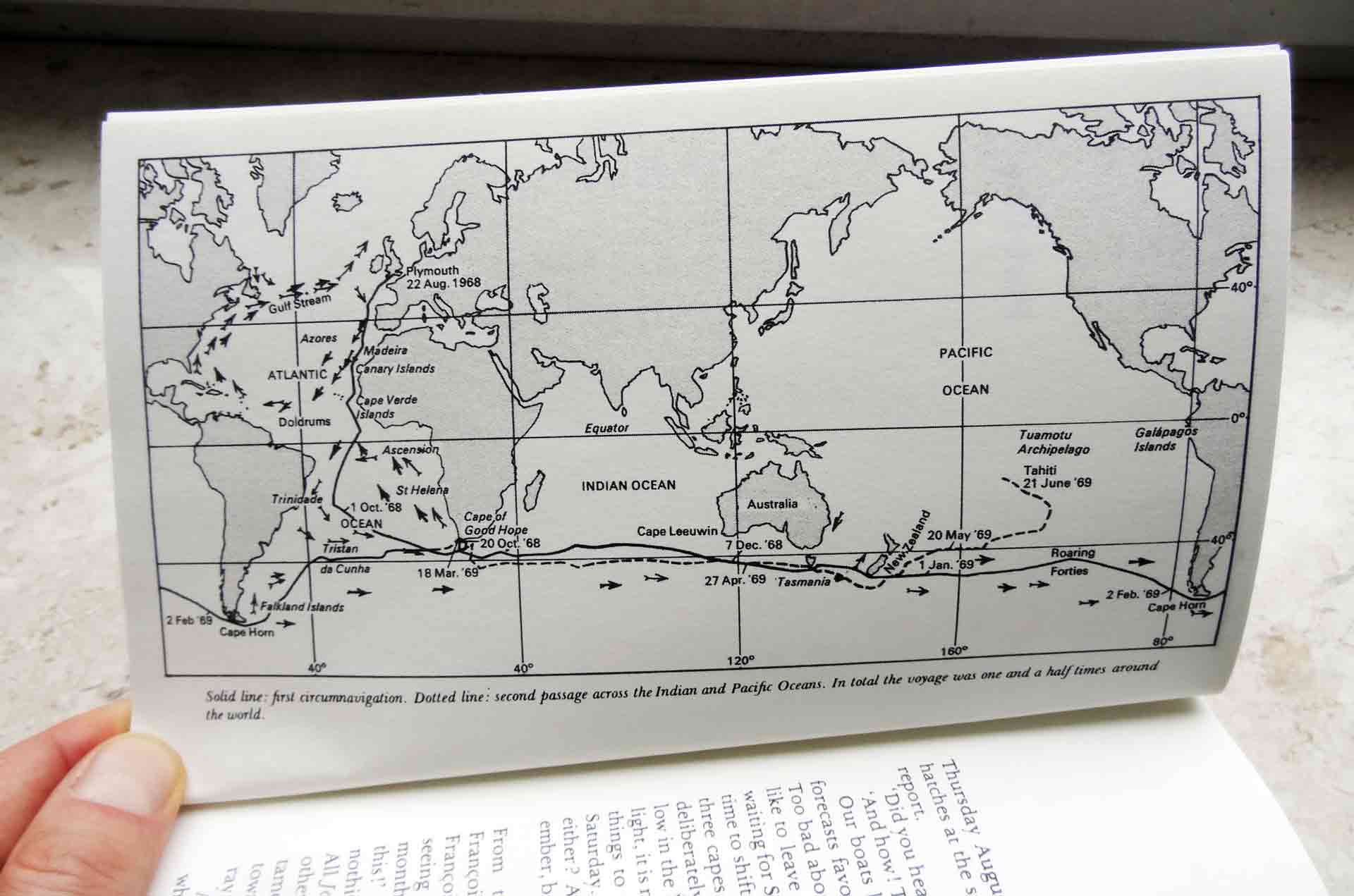
Moitessier can tell a story. He is able to choose words which are sometimes very lyrical, baroque and sometimes very short, drawing a sketch of the situation very quickly, giving an overview just to deepen himself into a very detail and dispersing his thoughts over one, two or four pages with great expanse. You virtually chew away the pages. When it gets busy onboard his fellow yacht JOSHUA he will switch to a writing style barely leaving you breathless, whereas when becalmed you can really smell the taste of sweat on your very own tongue, the heat of the sun beating down. Very contemplative, calm and smooth and sometimes highly philosophical.
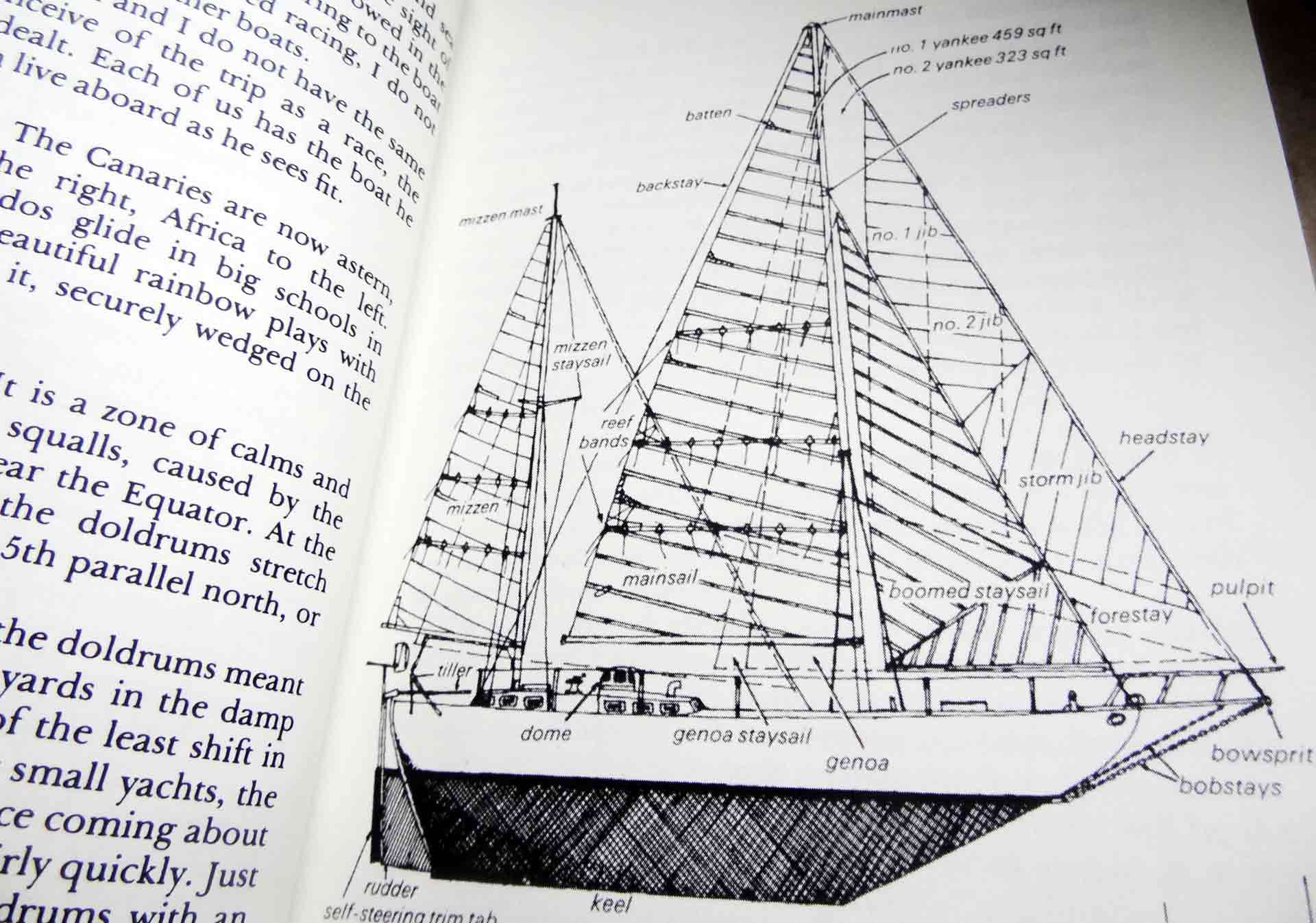
Moitessier really rests in himself. He can always keep calm. Remains positive and confident. There is never just a slight glimpse of fear even when he is to face the rough and brutal seas of the Roaring Forties. Great respect for the seas, deep salty breathing and big feelings just as if bare letters aren´t enough to describe what he sees and feels. He can describe situations just as if you are right next to him at the tiller of JOSHUA. Tasting salt on your lips. The book is a worthwhile read not really because it is too exciting – what he goes through during his voyage is barely “adventurous” because he seems to be a lucky sailor having a very rare fine-weather-period in the Forties – no, it´s a good book because it is far more than just book with a sailor´s story.
The Story
Having written the book like a diary you can hop on and off the story with ease. No long chapters, more chunky bites of stories. He does not describe every single day. Sometimes he just wraps a whole day up in one short sentence, sometimes he loses himself in pages over pages in details and processes which in ordinary life are not longer than the wink of an eye but for some reason gain the biggest interest of him. Just wonderful are the chapters when he writes about his encounters with animals and life on the high seas. Birds or fish, he is always interested in studying their behavior. More than once Bernard builds a close relationship between himself and particular animals who sometimes accompany him and his JOSHUA over the course of several days. He feels as if these fish or birds are guiding him, showing him safe passage through a sea of reefs, warning him of bad weather ahead and communicating in several occasions.
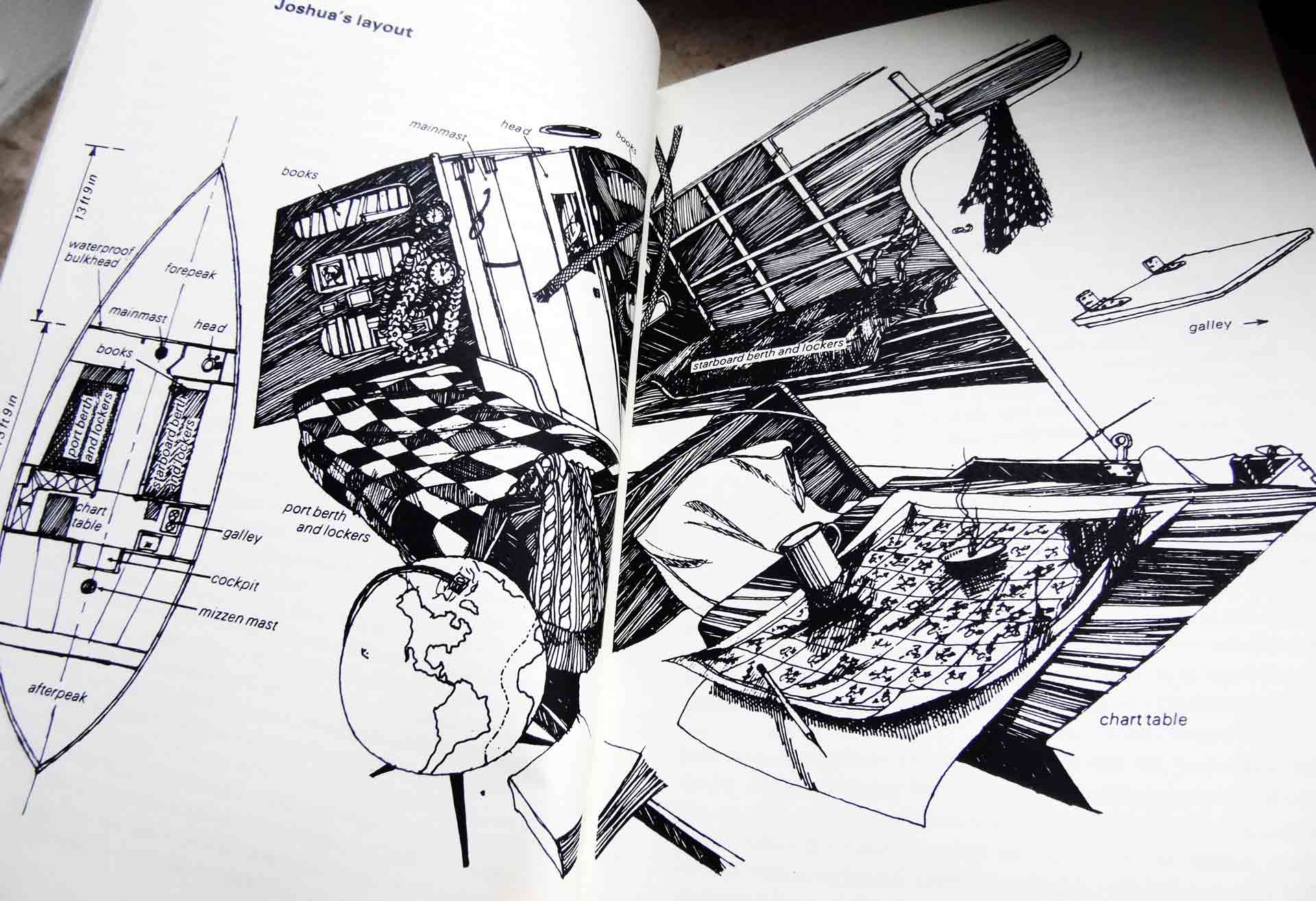
Just as Donald Crowhurst did on his fateful voyage it seems as if the long stretch of loneliness does something to Bernard over the time. He seems to gain more and more distance from himself, from Europe, from the World as we know it. He often refers to his disgust of the “Wrong Gods”, money as to speak, and the “modern” way of living, of endless competition and or constant struggle to obtain more and more senseless property. Just then, after rounding Cape Horn and being the sure winner of the race he decides to steer East instead of West, not returning to Plymouth to win the race and get the 5.000 Pounds but to again go round the Cape of Good Hope, Cape Leeuwin to end his voyage in Tahiti. He wants to escape the monster. Which he did indeed.
The Book´s most Gripping Passage
The most amazing pages are these of his animal encounters. Having to write this amazes me, because animals are of no personal interest of myself. But Moitessier is able to write in such a beautiful, close-up style, sometimes funny but always of such a child-like enthusiasm and wonder that it is just bare fun to read those chapters. When he communicates with them, convoys them – or they him? – and gets to know them more intimately. It is written so wonderfully diverting and entertaining, sometimes fantastic, barely believable. Example? Two porpoises seems to stay with his boat – each of them on either side of JOSHUA – for days after the whole swarm left just as if the two fish have been ordered to insure his safe passage through an area of reefs. They remain his escort for days. When he passed the dangerous area they leave.
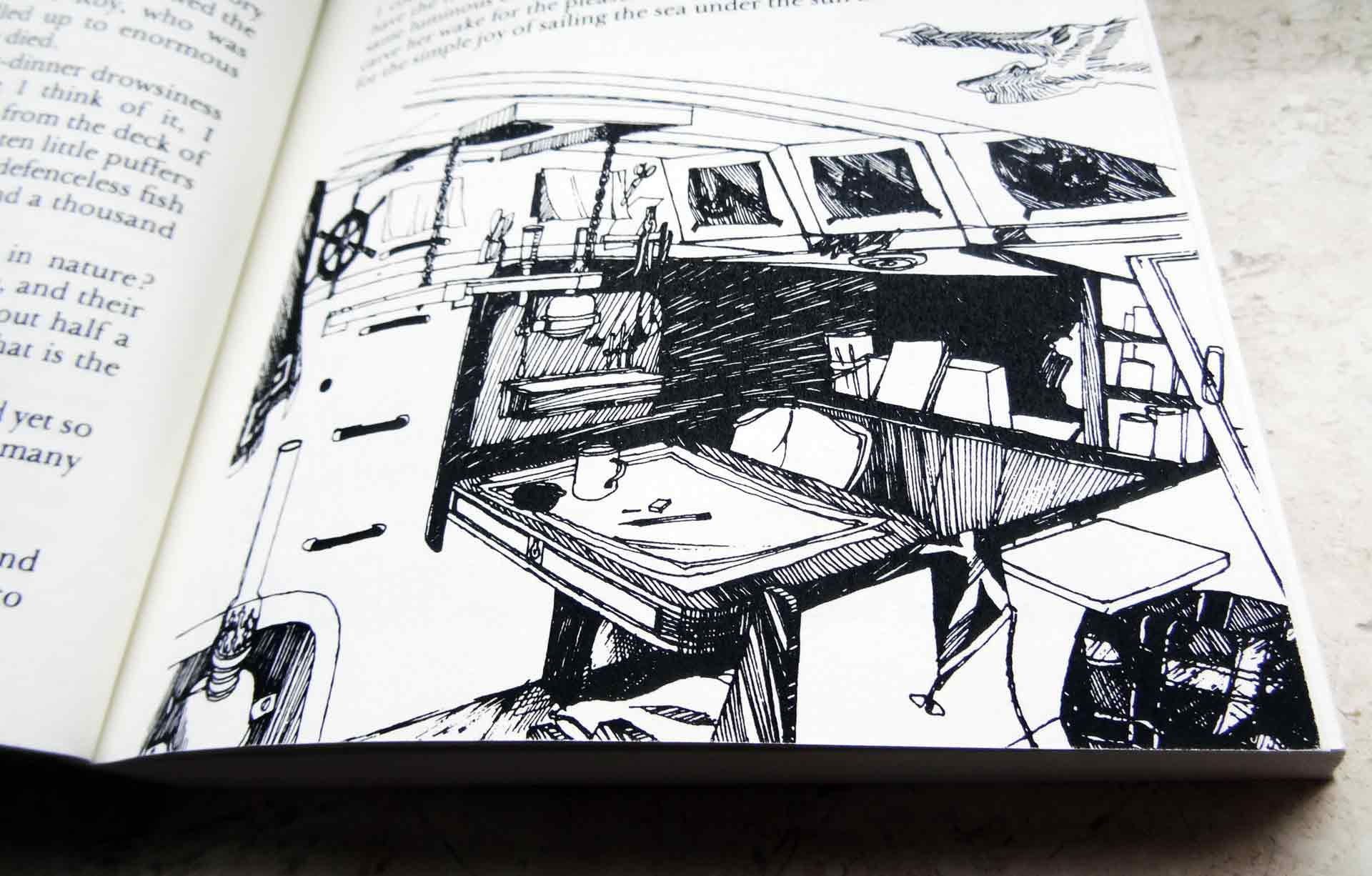
Moitessier knows how to draw attention, how to get full attention of his readers just to dismiss the reader into more or less easy pages to let go his mind before he requires full attention again some pages later. He drifts away, sometimes, into his childhood in Indochina, when he was a Junk-skipper sailing for years the South China Seas. His book is therefore a contemporary document of forgotten times as well.
What I really like about the book. And what not.
What I do not like so much about the book? The end. To be honest, the end of the book does make me sick. It is so sad having to carry his burden of pain for the destruction of Mother Nature, the oceans and mankind itself. His re-entry into the world of man, the pressure of having to make profit, his disgust in the face of all the rubbish being thrown into the Oceans is a terrible read. It simply blows your mind because it is full of depression. Sure, I can understand his feelings. But to end this wonderful book in such a brutal and crude manor is a big crack indeed and surely a masterpiece of compositing a story. But to be honest, I wish I had read about a beautiful sunset after reaching Tahiti and that´s it. The truth is terrible for sure.
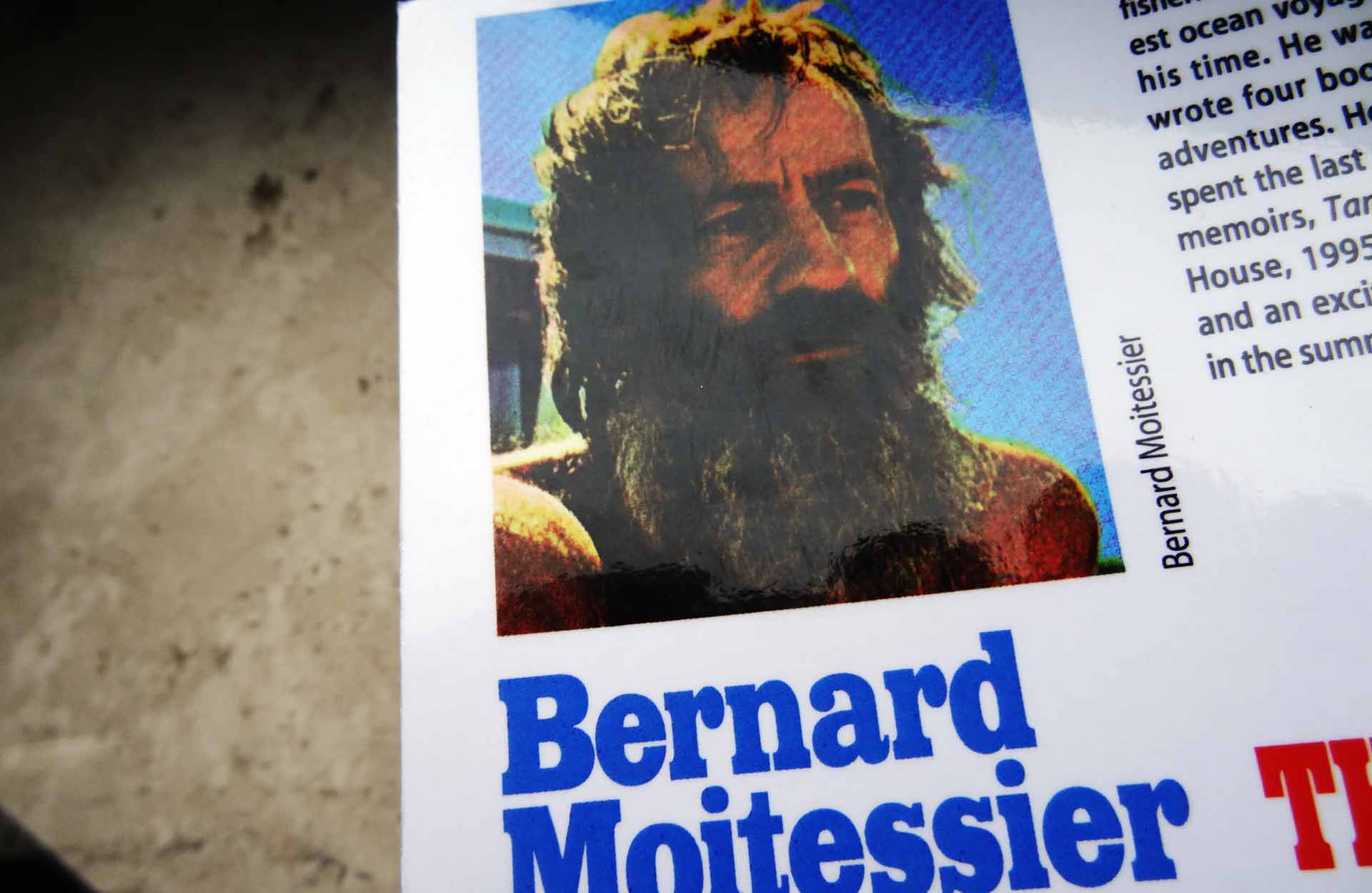
The last dozen or so pages are extraordinarily melancholic stuff, very hard to read. To follow his sometimes mazy chain of thought is hard work and requires a vivid brain. Very philosophic and not so maritime anymore. Nevertheless – especially in view of the Crowhurst story who´s psyche has been mistreated by loneliness and hardship underway as well – it´s a very interesting and gripping book. Having to make an overall judgement, in the end the good things are winning over the few bad things about this book. I really like his descriptive and contemplative style, never smattered nor smart-aleck. His precise eye for the small wonders he is able to observe for hours to feel out their secrets. Especially interesting are the last 30 pages. A compendium of hints & tricks for the cruising yachtsman and circumnavigator – state of knowledge 1969. So, it is definitely a good read, exciting, funny, entertaining and salutary.
Upcoming – Sir Robin Knox-Johnston: “A World on my own”
For the complete picture of the Golden Globe Race, one book cannot be left out. The book of the winner of that race, the first-ever single hand circumnavigator on his 32 feet SUHAILI– Robin Knox-Johnston´s “A World on my own” will be reviewed in the next article on this exciting topic in maritime history.
